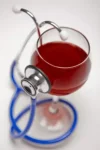
Instead, focus on consuming soups and other liquids to replenish nutrients and keep yourself hydrated. You can also drink decaffeinated teas and fruit or vegetable juices. Whole, unprocessed grains contain more fiber as well as B vitamins, which are a common deficiency in alcohol abuse. Examples of whole grains include quinoa, brown rice and non-instant oatmeal. Additionally, healthy fats support overall health by reducing inflammation, promoting heart health and aiding the absorption of fat-soluble vitamins often deficient in those with alcohol dependency.

Diet for Recovering Alcoholics
Setting and achieving fitness goals, even small ones, gives individuals a sense of purpose and accomplishment, helping to rebuild their confidence. The roots of this decision can be traced back to 1935, when Prohibition was repealed, and best diet for recovering alcoholic Congress passed the Alcohol Administration Act, which would eventually become the TTB. This act was set in place to allow the government to generate tax revenue from newly legalized alcohol and regulate the labels on alcoholic beverages.
Establishing Healthy Habits for Recovery

Avocado contains around 20 different vitamins and minerals, including vitamin K, vitamin E, vitamin C, potassium, and folate. Regular consumption of avocados has been linked to a decreased risk of obesity, diabetes, and heart disease. Incorporating avocados into your diet during alcohol detox can provide essential nutrients and support overall health [2]. Including whole grains in your diet during alcohol detox can help stabilize blood sugar levels and provide a sustained release of energy. Whole grains such as brown rice, quinoa, and oats are rich in fiber, vitamins, and minerals. They can help prevent spikes and crashes in blood sugar levels, which can contribute to mood swings and cravings.

Self-Injury Awareness Day and Beyond
Ideally, your rehab will connect you to nutritional aftercare, such as a nutritional counselor, that can check on your diet plan outside of residential treatment. Because excessive alcohol use can lead to protein deficiency, it’s great to add low-fat proteins into your recovery diet. Protein is essential for the brain and heart and serves as the building blocks for all the body’s muscles. Having enough protein can help reduce withdrawal symptoms such as nausea, headache, and fatigue.
- Discover what makes Steps to Recovery the best rehab, from personalized treatments to robust support systems.
- When planning your diet both in rehabilitation as well as when you are living independently, keep these tips for a sober diet in mind.
- For those addicted to alcohol, a large portion of caloric intake comes from alcohol, not fruits, vegetables and protein, leading to weight gain and obesity.
- As we mentioned above, calcium deficiency is most commonly found in those that suffered from alcohol addiction.
- Cayenne pepper is a powerful spice that can be beneficial during alcohol detox.
Composition of the Recovery-friendly Diet:
It can be tempting to drink sodas, energy drinks, and coffee, mainly because coffee is a staple of AA meetings. While caffeine isn’t the worst thing for you, too much caffeine can dehydrate you and cause an increase in headaches. Also, sodas and energy drinks usually contain a lot of sugar (or sugar substitutes) that are harmful to your health. Just like any part of a diet, moderation is key (something recovering alcoholics are known to have trouble with). This article will provide some information for better diet choices for recovering alcoholics. Of course, depending on where you are in recovery, some of these suggestions may be more or less pertinent for you.
